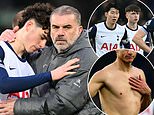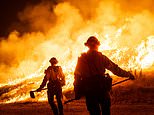

Chicago Federal Reserve President Austan Goolsbee on Sunday warned against misrepresenting the inflationary impacts of corporate price hikes and tariffs, which have become focal points of the Trump and Harris campaigns' economic platforms.
Goolsbee steered away from directly speaking on the presidential race given the Fed's commitment to remaining independent and politically neutral. But his comments come during an election cycle in which voters have consistently ranked the economy and the high cost of living as their top priorities.
As a result, Vice President Kamala Harris and former President Donald Trump have both made lowering costs the driving force of their economic proposals.
Harris has proposed a federal ban on "corporate price-gouging in the food and grocery industries." The Biden administration has repeatedly blamed stubbornly high prices on companies that have kept their prices artificially high even as their production costs come down.
Though Goolsbee would not explicitly comment on the Harris campaign's proposals, he said high prices cannot be solely explained by corporate profit motives.
"The difference between what's happening to prices and what's happening to costs, that can vary a lot over the business cycle," Goolsbee said on CBS' "Face the Nation." "So I just caution everybody over-concluding from any one observation about markups."
Goolsbee also clarified the inflationary impact of higher tariffs, one of the key pillars of Trump's proposed economic plan.
"Tariffs raise prices," he said. "A one-time increase in cost will raise prices but is not an extended inflationary thing."
Trump has repeatedly promised that he would hike tariffs on all imports across the board, including by implementing a higher rate specifically for Chinese imports.
Economists have cited that hardline tariff proposal as a major reason that Trump's proposed agenda could threaten to reheat inflation, but the Republican presidential nominee has flatly rejected that notion.
"A tariff is a tax on a foreign country. … It's a tax on a country that's ripping us off and stealing our jobs, and it's a tax that doesn't affect our country," Trump said at his rally in Pennsylvania on Saturday.
Goolsbee said that tariffs do not necessarily result in long-term inflation, but by making producer costs more expensive, they do increase consumer prices in the short term.
"Whether you want to call that inflationary or not, they raise costs and they raise prices," he said.
Inflation has been cooling slightly over the past several months since it reached sky-high levels in the summer of 2022. Last Wednesday, the annual inflation rate in the consumer price index report reached its lowest level since March 2021.
But as Trump and Harris work to sell their economic pitches to inflation-weary voters, investors' eyes are on the Fed. Many are hoping the central bank cuts interest rates in September, especially as recessionary fears heighten.
The Fed is preparing for its annual meeting in Jackson Hole, Wyoming, this coming week, where markets will be looking for signals of an interest rate cut.
Goolsbee, who is not currently a voting member of the Federal Open Market Committee, stressed that the Fed is still mulling its interest rate decision.
"Everything is always on the table — there's possibility of recession," he said. "The last GDP growth number was higher than expected, so that was a that was one of the bright spots, but you've always got to worry about every contingency. That's the job of the central banker."











